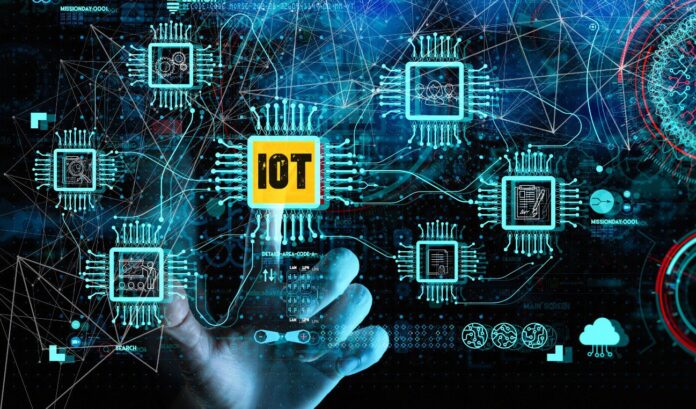T-Mobile’s IoT developer kit includes a complete software development kit (SDK), built on the Zephyr Real-time Operating System
T-Mobile US announced the launch of its first IoT developer kit, which will enable developers to connect to the carrier’s network and create connected IoT solutions.
The kit is already available through T-Mobile DevEdge, the carrier’s self-serve developer platform that launched earlier this year. DevEdge, and the IoT developer kit, “democratize access” to the network, the carrier says, making it “fast, easy and simple for any developer to create connected solutions.”
T-Mobile’s IoT developer kit includes a software development kit (SDK), built on the Zephyr real-time operating system, which, according to the telco, enables an easy integration with cloud services and flexibility in resource-constrained environments.
T-Mobile’s IoT kit features a CAT-M IoT SIM offering data rates of up to 375 Kb/s and 500 MB of data, the SDK for integration with cloud services, plus embedded sensors and radios and debugging capabilities for programming. The kit also offers developers access to some free APIs, like device location, SMS notifications and diagnostic tools.
The offering has Bluetooth and Wi-Fi enabled functionality as well, to support flexibility with additional use cases, T-Mobile US said.
“T-Mobile is opening doors for innovators of all kinds, making building for wireless simple and easy… the way it should be. We are empowering developers, no matter their size or what stage of the development process they’re in, to create innovative connected solutions,” said Rob Roy, SVP of emerging products at T-Mobile. “Our IoT developer kit, a fully functional out-of-the-box kit that connects seamlessly to our leading network, is our next big step in driving that innovation forward.”
In September, T-Mobile US launched an end-to-end suite of connectivity, compute, devices and applications targeting smart cities, retailers and autonomous factories, among others.
The new “Advanced Industry Solutions” an offering was part of T-Mobile US’ efforts to develop industry-specific solutions for retail, manufacturing, logistics and smart cities, the carrier indicated at hte time. T-Mobile US said that it “sources and manages all the connectivity, compute, devices and applications needed from the network core to a heat mapping sensor on the retail floor.”
The U.S. carrier said the new suite would initially cover four “major early adopter categories” like logistics, manufacturing, retail and smart cities, with plans to expand to new sectors in the future.
In the retail sector, T-Mobile US said that businesses can get the same kind of data about customers in-store as they do with customers online, including capturing things like foot traffic, dwell time, and peak hours. It can also help businesses gauge the effectiveness of marketing efforts like window merchandising and in-store kiosk displays, the carrier said.
In the manufacturing sector, customers could use the solutions to automate outdated processes, while elements like heatmap activity tracking can help them optimize the layout of a plant, T-Mo added.
Meanwhile, in the logistics sector, companies can “address lingering supply chain issues from the pandemic and other world events,” the carrier said. Additionally, the smart cities solution “includes elements like smart monitoring for enhanced security, parking and traffic flow optimization,” it offered.

